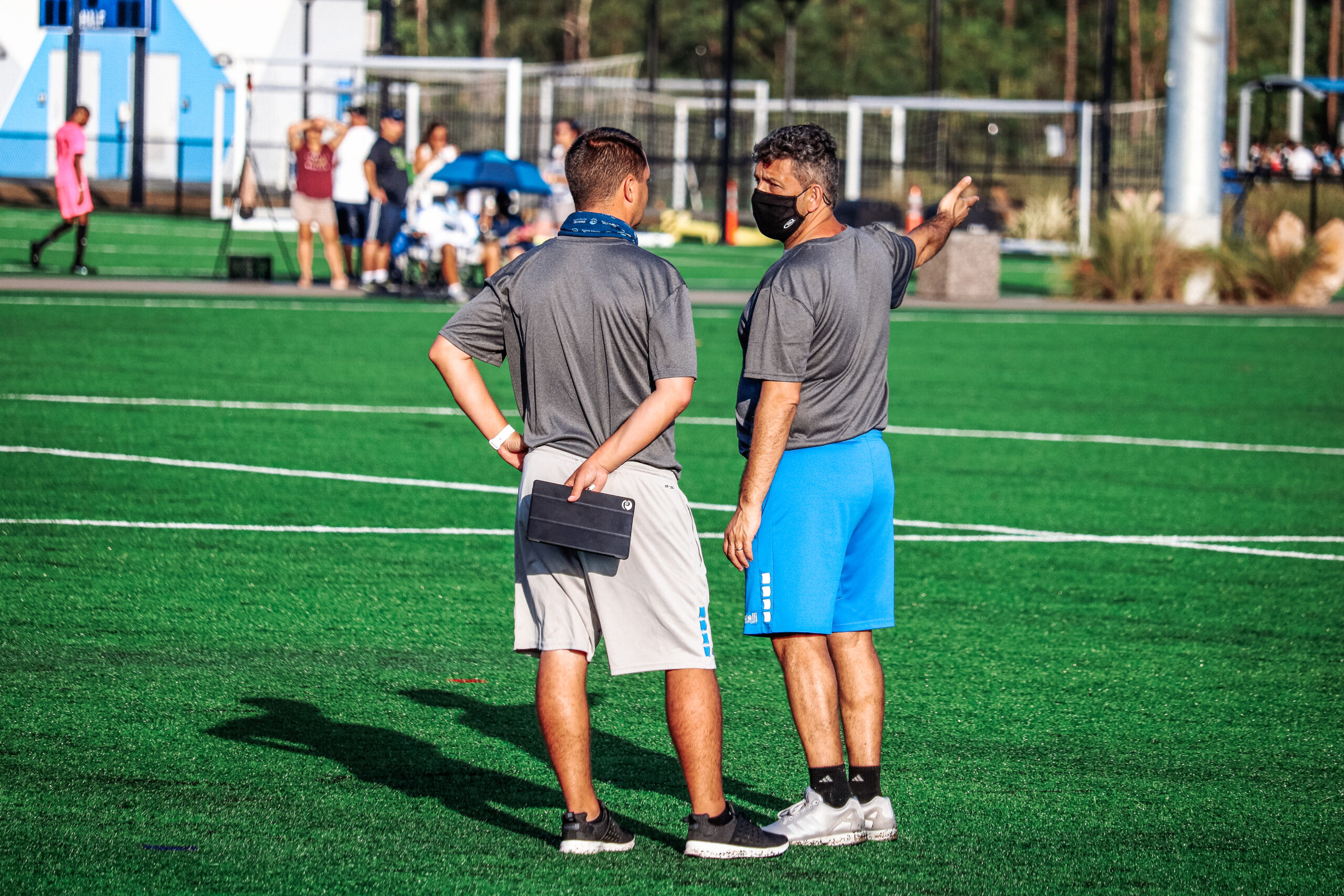The Art of Soccer Parenting – Supporting Your Child’s Journey

Supporting Your Child’s Soccer Journey
PART 1 OF 3
More than 2.1 million children from age 6 to 12 played youth soccer in the U.S. as of 2021, which was a 19.5% increase from 2020. These numbers make it increasingly important for soccer parents to support their kids – and their teammates, opponents, and coaching staff – before, during, and after their matches. Knowledgeable, supportive parenting in the youth soccer community can lead to lasting benefits during players’ childhood years and long after that.
Kids are naturally competitive. Even in U6 games where scores aren’t tracked, young players still keep track of their goals. It’s crucial for their emotional development to take their cues from the adults in their soccer lives, especially as parents comprise most youth soccer coaches.
Vince Ganzberg, former director of education for Indiana Youth Soccer, notes that around 75% of children quit playing organized sports before they turn 14. The primary reasons kids play are skill-building, community development, fitness, and – most of all – fun. Ganzberg emphasizes that “winning” is not one of the main reasons. He adds that the reasons kids lose interest in playing are adult-controlled, namely not enough playing time, over-emphasis on winning, lack of fun, parent and coach behaviors, lack of social support, and dissatisfaction with their on-field performance.
With these trends in mind, how can soccer moms and dads play a positive role and support their kids’ soccer participation? They can become knowledgeable about the game, remember that soccer is supposed to be fun, and focus on the kids, rather than their own interests.
Soccer Parenting – How to Support Your Child in Youth Soccer
Since 1994, when the FIFA World Cup was held in the U.S., soccer has exploded in popularity. A 2018 study conducted by the sports and fitness industry found that 4.4 million children from age 6 to 12 and 2.45 million children from age 13 to 17 played outdoor soccer. Notably, many kids who watched that 1994 World Cup game and played the beautiful game are now parents of their own young players. It can be tempting for these knowledgeable parents to want to pass their experiences on to their kids by coaching from the sidelines. As they remember from their playing days, supportive parenting during soccer season is a lot more fun than sideline criticism.
Karl Dewazien, the Emeritus Director of Coaching for the California Youth Soccer Association, has dedicated his career to improving youth soccer education. His educational philosophy places the primary focus on young players: “The outcome of our children is infinitely more important than the outcome of any game they will ever play.”
In his “Letter to Parents,” Dewazien puts parents’ roles and children’s needs into clear perspective:
“Mom and Dad, you are your child’s first and most influential teacher/coach. The stimulation and support you provide can instill a desire to play soccer. If your child plays only to gain your approval, their interest in playing may decline, and playing for its own sake is sacrificed. Make this learning experience together as much FUN as possible so that your child becomes self-motivated and improves on his/her own.”
Encourage, Don’t Push
From a kid’s perspective, the most important thing a parent can do is to be at their games. During the games, be present rather than spending time on your phone. Kids notice whether their families are watching them. Be a good sport – young players emulate their parents’ behaviors, words, and attitudes.
Parents can help their kids by encouraging their achievements, no matter how small they seem. It’s important for parents to encourage other kids, especially if their own parents aren’t there or aren’t supportive. Parents can also help their kids encourage their teammates before, during, and after their matches.
Even if a young player aspires to higher levels of play, parents need to remember that the primary reason kids play is to have fun. By being overly critical, kids’ most important role models – their parents- can drain the fun and motivation to play right out of the game.
In our next part to this series… we’ll discuss how to encourage and support your children for their continued journey as an up-and-coming soccer star!
If you think Northeast Rush would be a good fit for your child, or your child has expressed interest in joining a soccer league, learn how you can sign up now!
Share This Post



